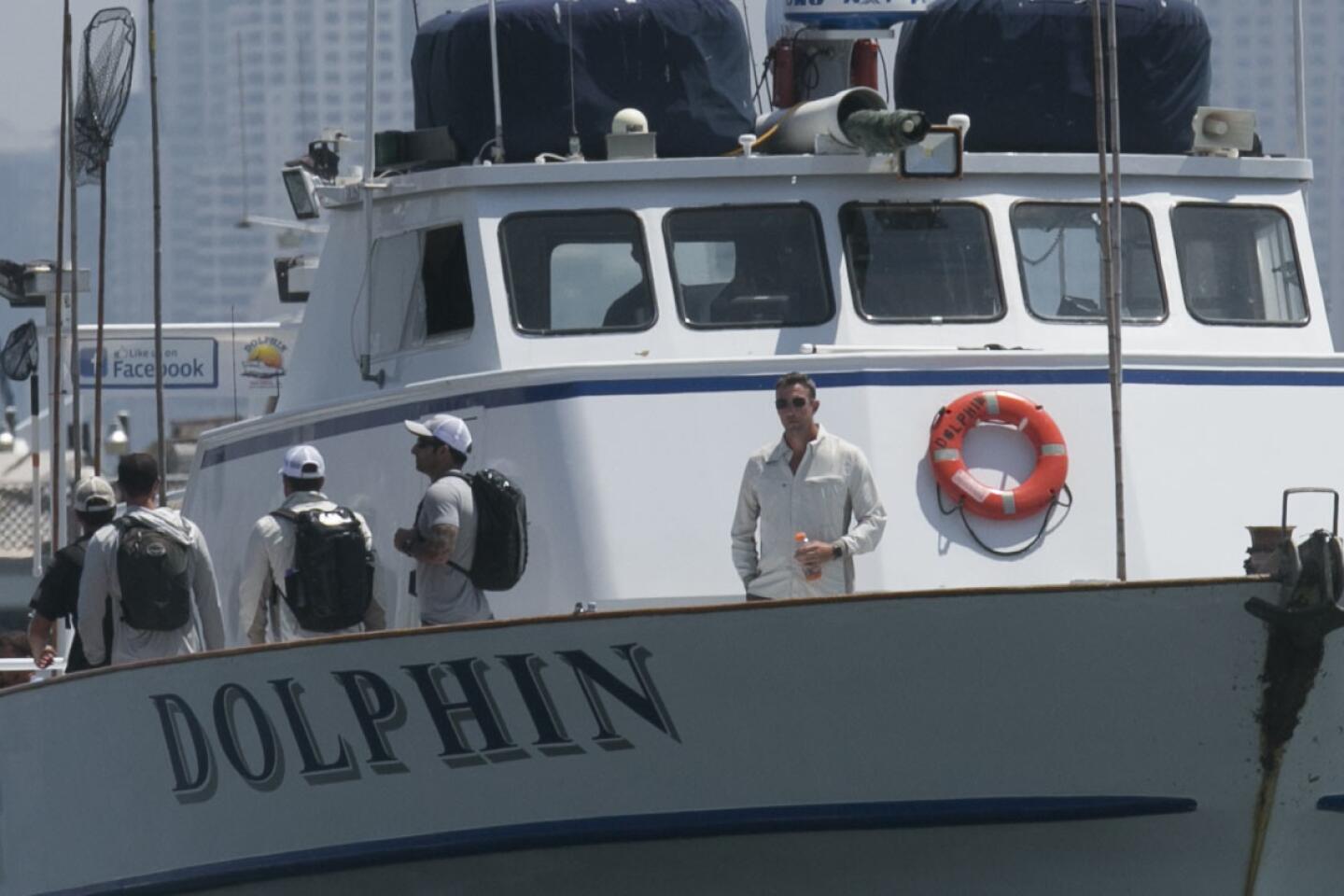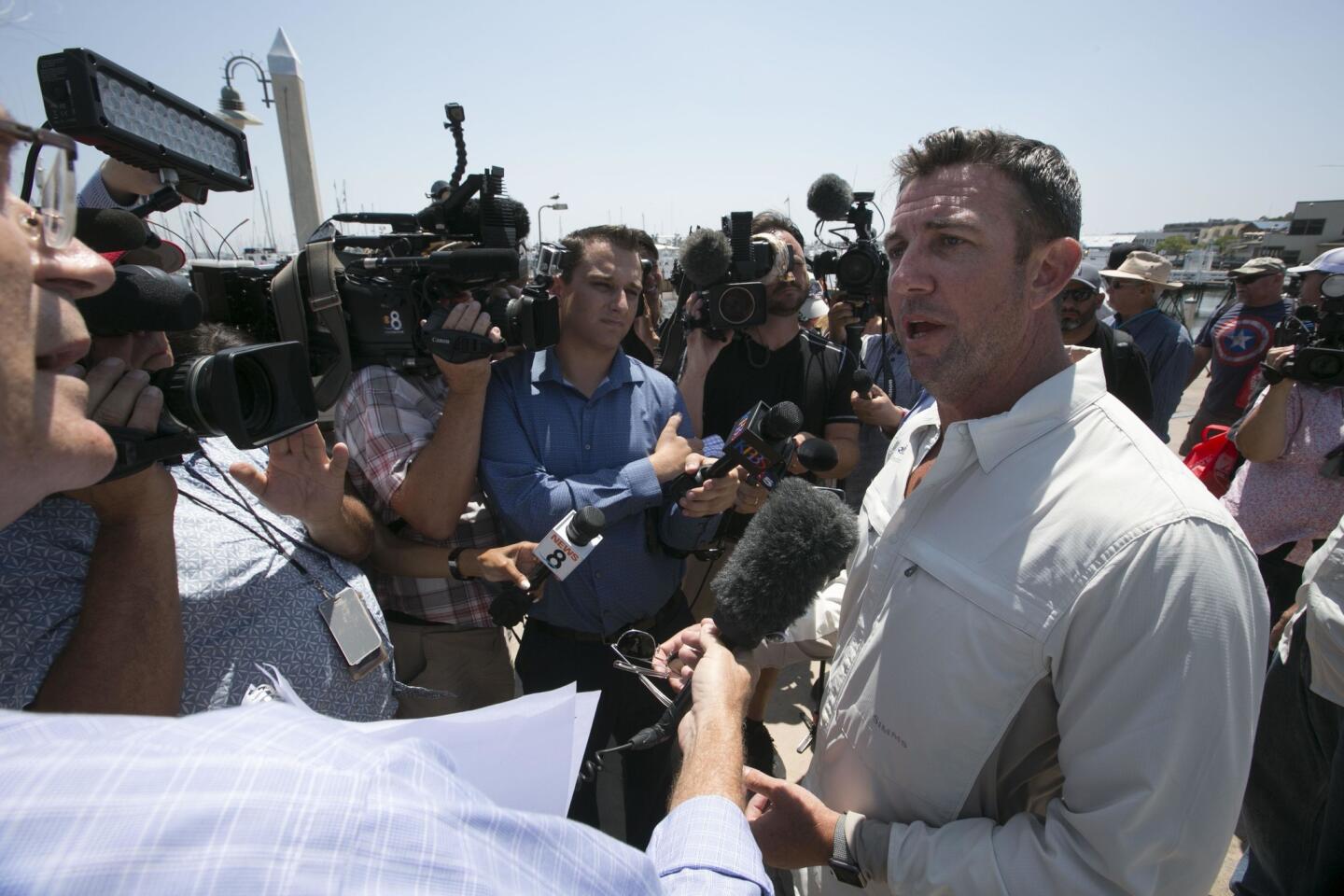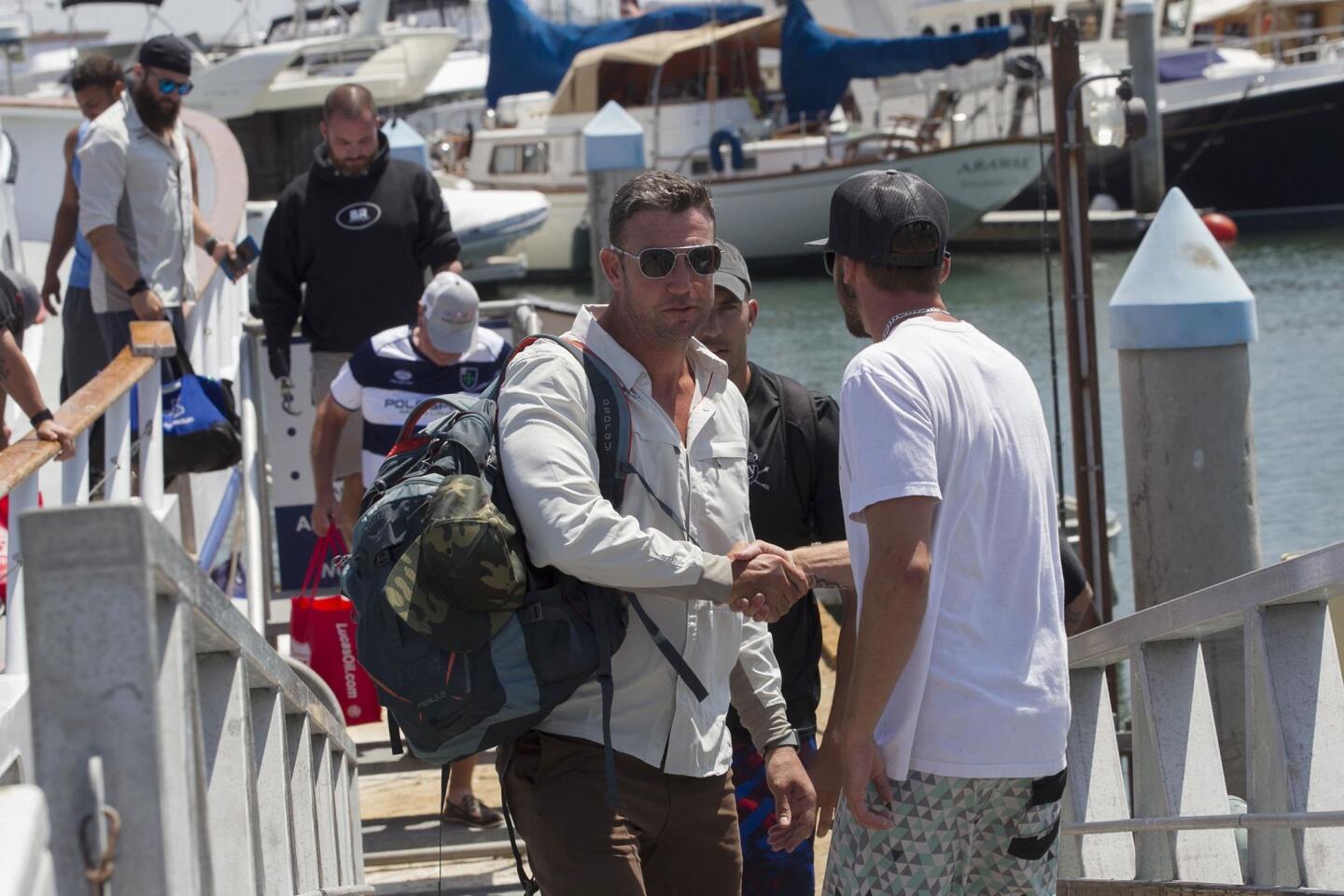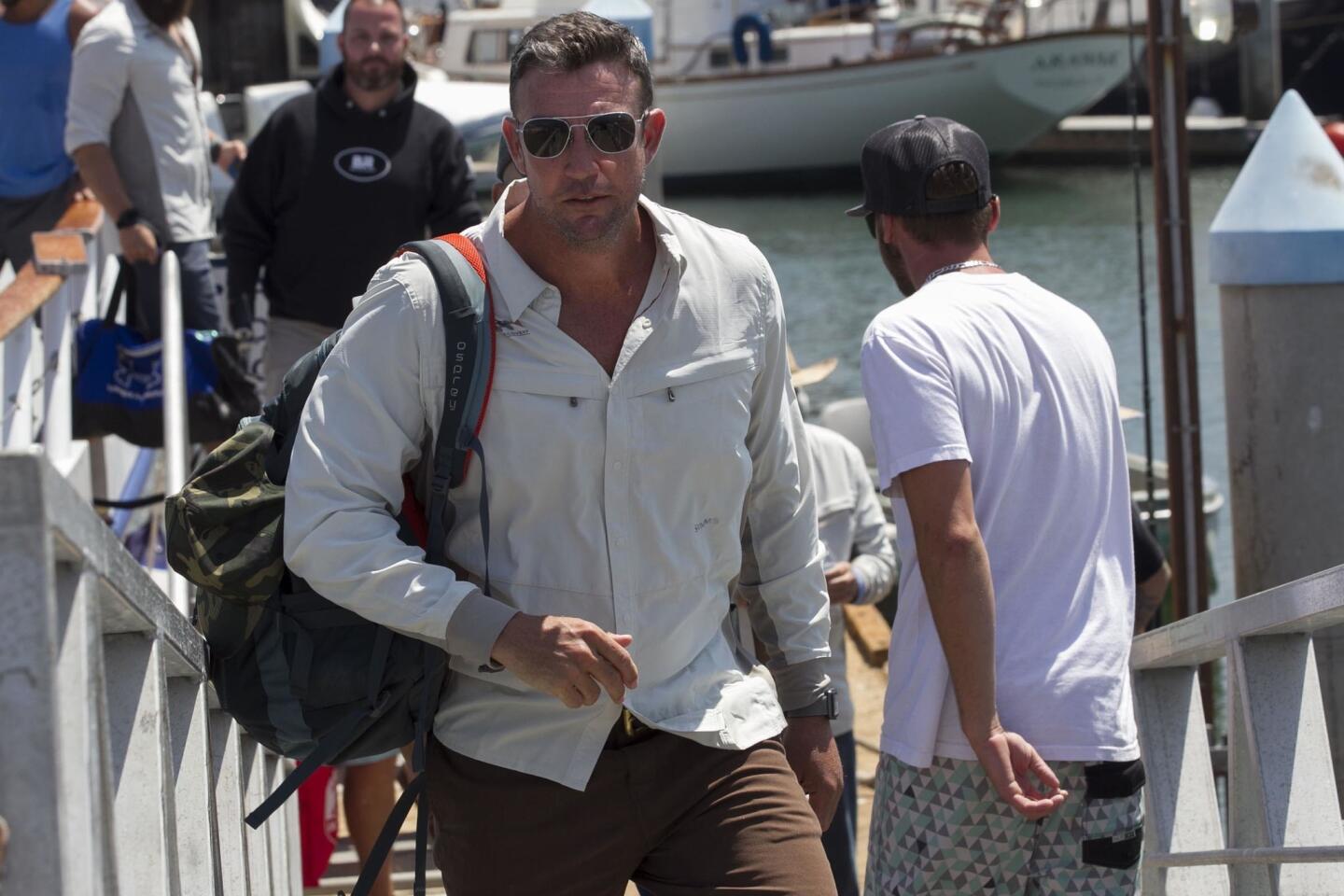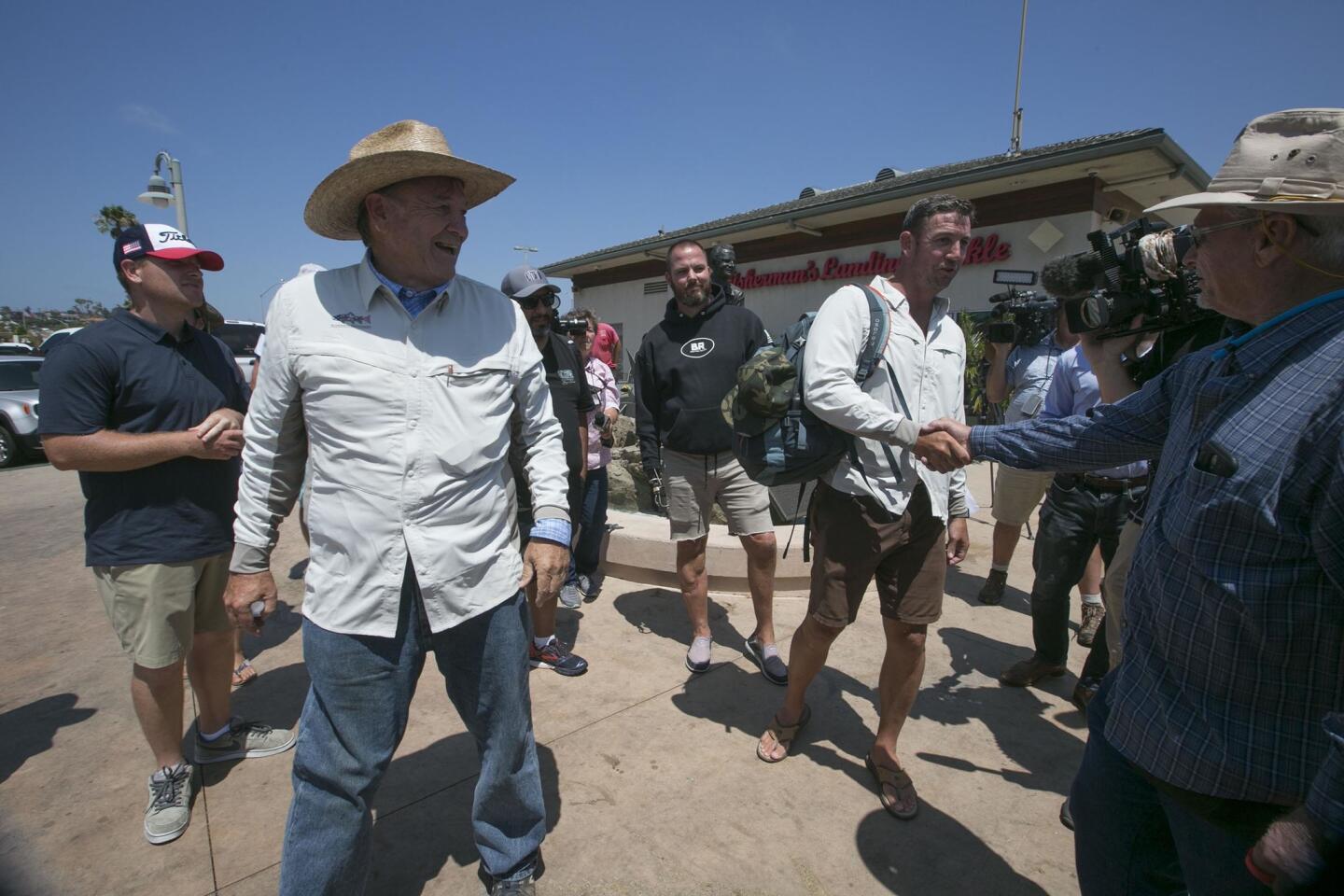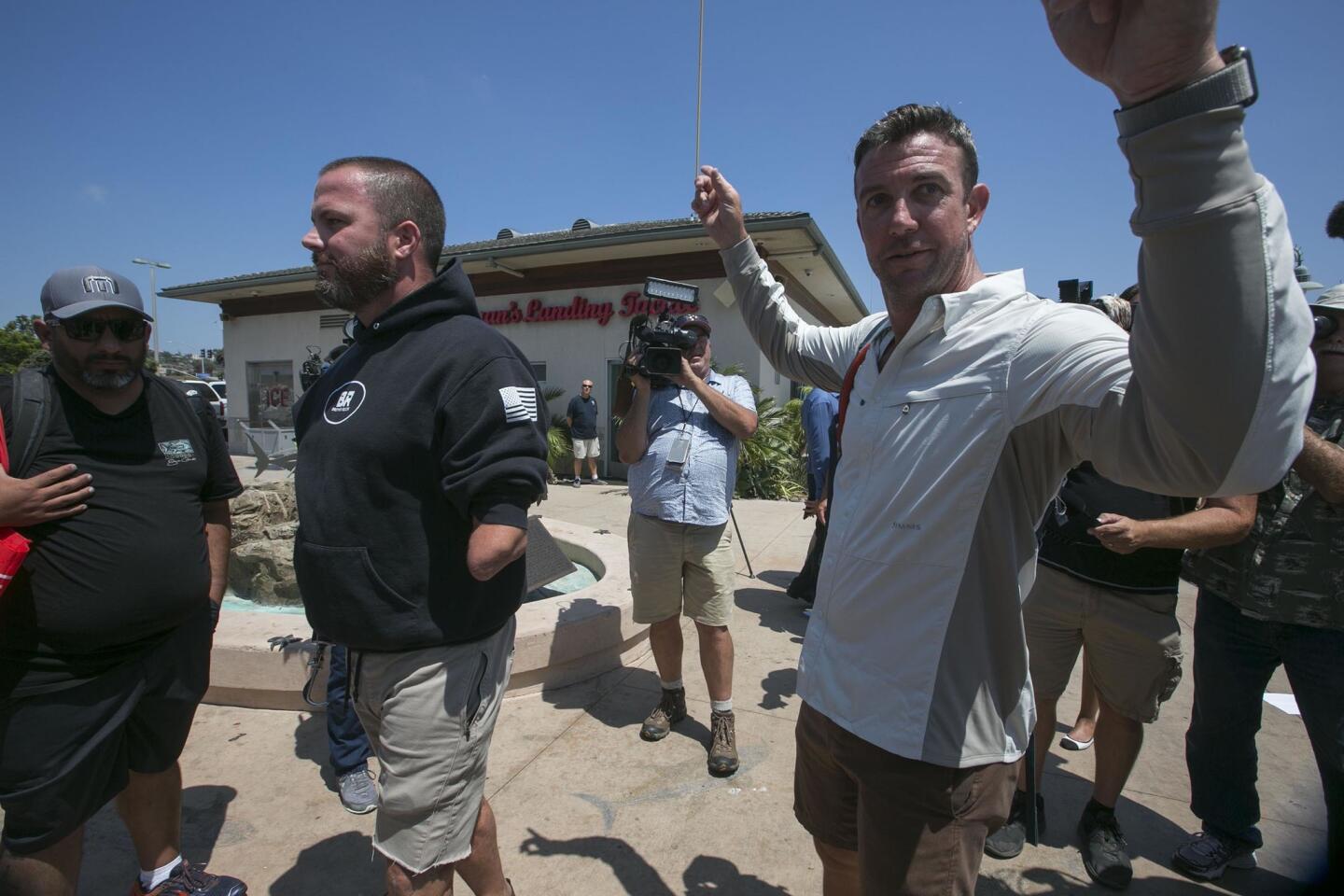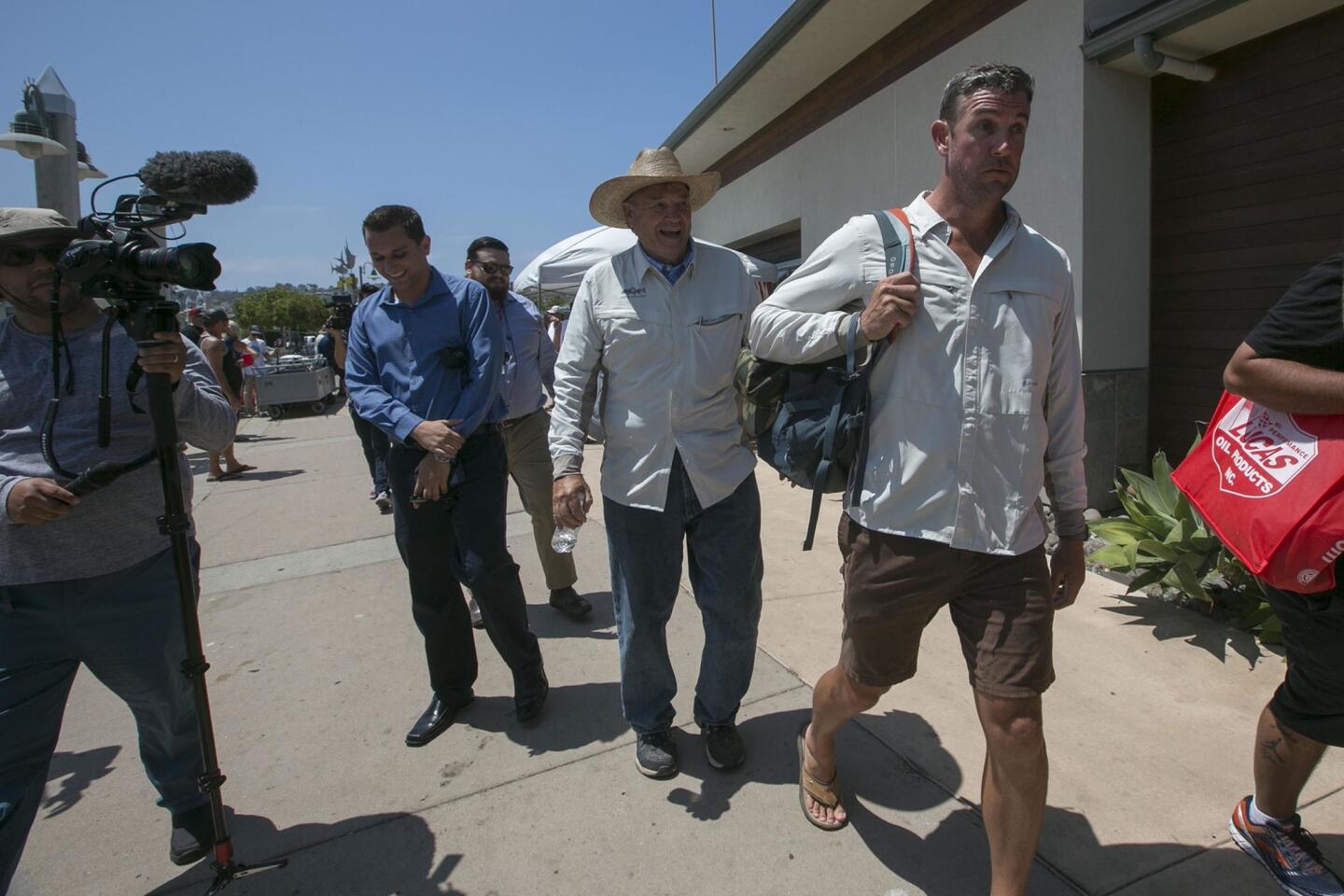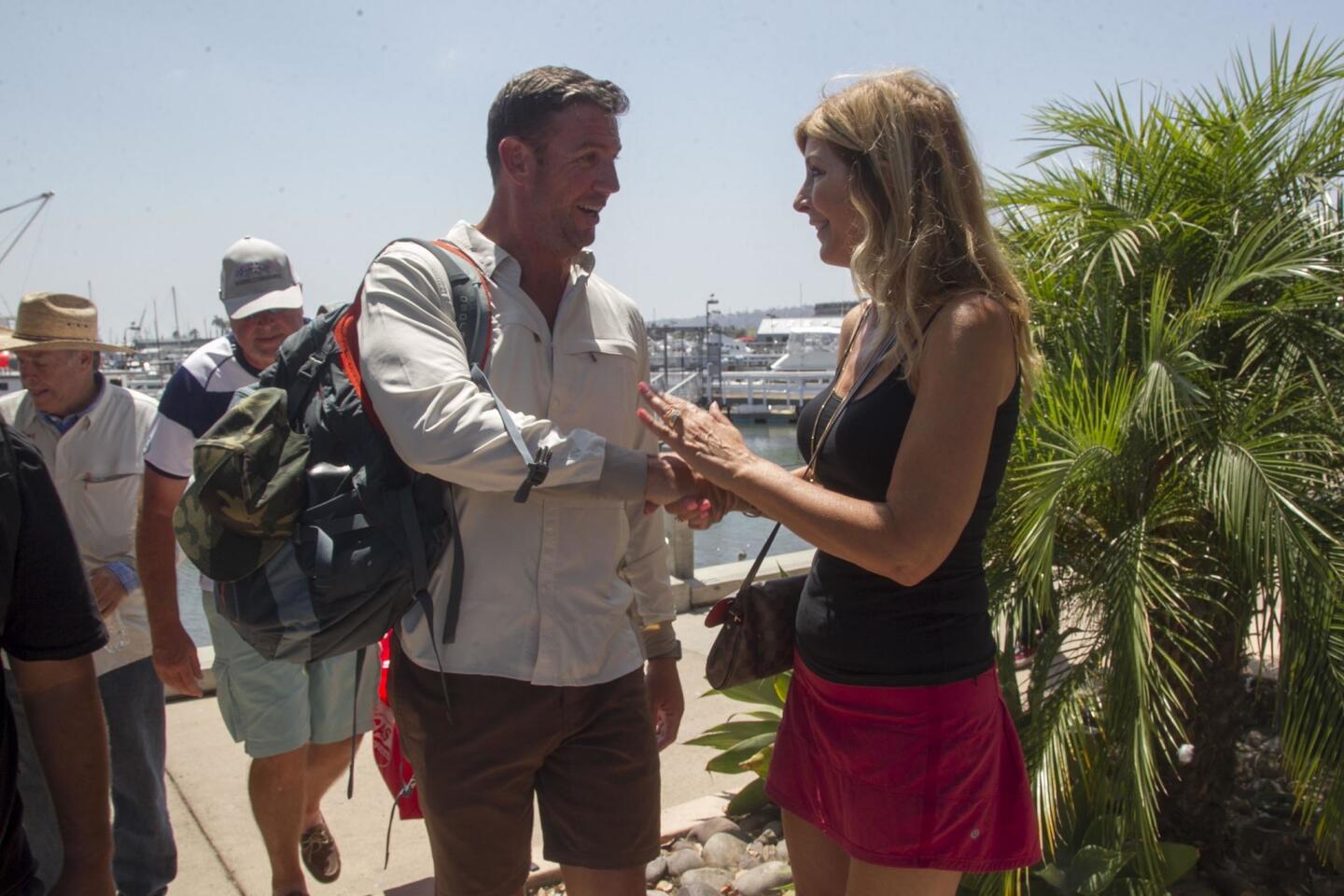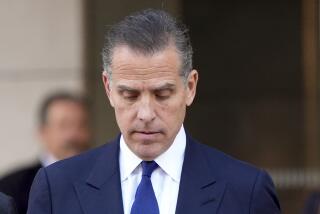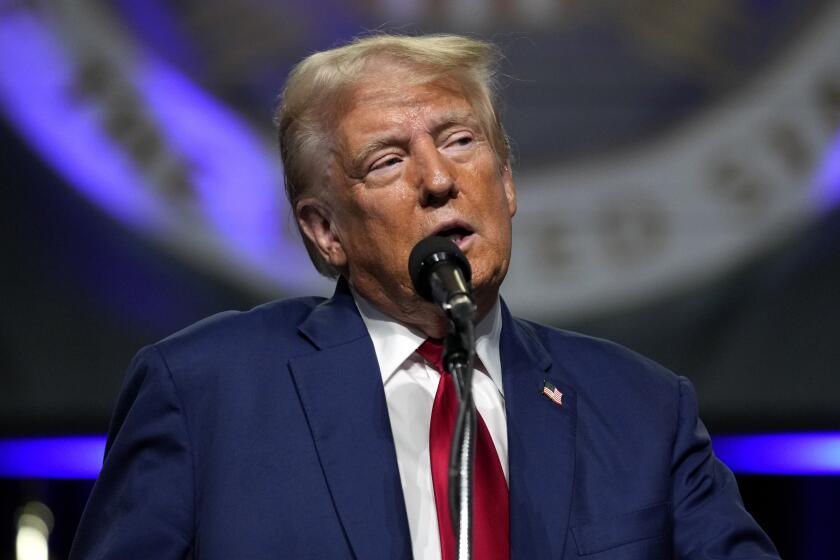Rep. Duncan Hunter says Democrats, ‘deep state’ behind indictment, says he’s not resigning
Republican Congressman Duncan Hunter of Alpine forcefully responded Wednesday to a 60-count indictment filed this week in federal court in San Diego.
In a 15-minute back and forth with reporters, Hunter invoked a “deep state” conspiracy among “partisan Democrat prosecutors” as the reason why he and his wife, Margaret Hunter, were facing charges of conspiracy to commit wire fraud, falsification of records and aiding and abetting in the prohibited use of campaign contributions.
Tuesday’s indictment listed 200 instances in which the Hunters allegedly made personal purchases using campaign funds, including family vacations, meals and everyday household expenses. The $250,000 of improper expenses alleged by prosecutors — from tequila to Taco Bell to “Punky Brewster items” at Target — have become fodder for a steady diet of national news stories.
But Hunter, 41, told reporters in San Diego on Wednesday, “I’ve never used my campaign for personal expenditures — ever.”
Reporters asked about items listed in the indictment going back to 2009, his first year in Congress.
“It’s the U.S. government trying to make you look bad,” he said. “They can make it look however they want to make it look, we all know this.”
Then Hunter said again, “I never used campaign funds for personal purchases — ever.”
Hunter said every purchase listed in the 47-page indictment was campaign-related.
“They took legitimate campaign expenses and just tossed them all in and said these are all illegal,” he said.
Two of the items prosecutors cited — Pittsburgh Steelers games in 2010 and 2013 — amounted to $4,129 in alleged campaign spending on personal activities. Prosecutors identified one of the games as a family outing and the other as a birthday gift for a family member.
Hunter said both games were, in fact, campaign activities.
“They were massive campaign events,” he said. “(We were) raising money off doing them. That’s what we do.”
Hunter also denied overdrawing his personal bank account, which prosecutors said happened more than 1,100 times in a seven-year period, costing the Hunters more than $37,000 in overdraft fees.
Hunter did say he might have not had his eyes on his accounts as much as he should have.
“I was in the Marine Corps, I did three tours,” he said. “When I joined the Marines, I gave power of attorney to my wife, ’cause I was gone all the time. I didn’t have a lot of visibility on my personal finances. When I go into Congress...I kept it going the same way.
“I didn’t have as much visibility on my personal finances as I should have,” Hunter said. “There’s nothing illegal about being poor. I don’t think there’s anything illegal about not having money in your bank account.”
Hunter is paid $174,000 a year as a member of Congress, and his campaign paid his wife $3,000 a month as campaign manager. The indictment alleges the couple used campaign funds for European vacations, groceries, school lunches, trips to Lake Tahoe and other expenses. Spending campaign contributions for personal benefit is prohibited by federal law to protect against undue influence by donors.
Prosecutors also allege that the Hunters concealed the true purpose of many expenses. For instance, the campaign paid to fly Margaret Hunter’s mother to Poland, the indictment says, reporting it on federal disclosure forms as “campaign trips to New Orleans and Kentucky.”
Duncan Hunter’s impromptu news conference took place at the Point Loma Sportfishing Landing, where Hunter said his campaign sponsored a fishing trip for wounded warriors in conjunction with Rivers of Recovery, a 501(c)3 that provides a variety of rehabilitation treatments for veterans.
Asked about specific expenses over and over, Hunter would answer by discussing the U.S. Department of Justice. He said politically-motivated Democrats timed the indictment in order to affect November’s election.
“This has to do with them being political,” he said. “This isn’t about my personal bank account… I paid the money back two years ago, before the election.”
Hunter has been under scrutiny since April 2016, when the Federal Election Commission and then The San Diego Union-Tribune began raising questions about video games, private school tuition and other unusual expenses from his campaign accounts. In response, Hunter reviewed the matter and repaid more than $60,000 of expenditures he identified as mistaken, personal or insufficiently documented. He sold his home in Alpine and moved in with his father and predecessor in Congress, Duncan L. Hunter.
That should have been the end of it, he said.
“This is political — period,” Hunter said. “This is the U.S government — what I would call the deep state — or folks in the U.S. government that don’t care what the election does, they want to rig the election their own way, because they can’t beat me in a real election.”
Hunter is facing a challenge from Democrat Ammar Campa-Najjar on the November ballot. In a strongly Republican district, the race would normally be a walk for Hunter. The indictment may make it more competitive.
Hunter’s comments echo those of President Donald Trump, who is facing his own problems with the Justice Department. Like Trump, Hunter called his prosecution a “witch hunt” in a campaign statement.
The congressman pushed back on the suggestion he should resign.
“I’m not resigning,” Hunter said. “I’m not gonna resign with a bunch of leftist government thugs throwing allegations at me...This means nothing — the indictment is all they have. They only have what you’ve now seen. That’s it. I’ve done nothing wrong and I say bring the trial now.”
Hunter said two U.S. attorneys who worked on his case — Alana Robinson and Emily Allen — attended a Hillary Clinton fundraiser in 2015, and thus have a conflict of interest in his case.
Hunter’s attorney, Greg Vega, sent a letter to Deputy Attorney General Rod Rosenstein on Aug. 6 , saying that Robinson and Allen’s involvement should have led to a recusal of the San Diego U.S. Attorney’s office, and asking to come to Washington, D.C. to present his case — something that might have delayed the indictments beyond the Nov. 6 election. Rosenstein declined.
“The United States Attorney’s Office for the Southern District of California and the Department of Justice in Washington, D.C. reviewed and rejected Mr. Hunter’s complaints,” said Kelly Thornton, a spokeswoman for the U.S. Attorney, in an emailed statement. “The Secret Service requested the prosecutors’ attendance and routinely asks prosecutors to attend events involving their protectees.”
Thornton declined to elaborate when asked follow-up questions about why federal prosecutors would be asked to attend events by the Secret Service.
The Secret Service on Wednesday declined to discuss the matter or provide any general policies or procedures regarding why prosecutors’ presence might be requested at such events.
“The U.S. Secret Service is aware of the situation but we cannot comment due to the potential for litigation,” a spokesman said in an email.
Both Robinson and Allen are registered to vote as Democrats, according to 2017 San Diego County voter registration data.
Data was not available for 2015, when the Clinton fundraiser occurred, but the following year as the campaign peaked, the Secret Service handled more than 2,700 campaign stops for the three presidential candidates and their spouses and two vice presidential candidates and their spouses, according to the agency’s annual report. A handful were in San Diego County.
Former U.S. Attorney Chuck LaBella, now in private practice, said there is no reason to believe the U.S. Attorney’s Office isn’t being truthful about the situation, but added that the notion of the Secret Service requesting the presence of federal prosecutors “seems odd.”
LaBella said he never came across such requests in his 24 years in the U.S. Attorney’s Office – in Manhattan, Washington, D.C., and San Diego – and said he can’t think of a reason why a protection detail would want prosecutors there. LaBella said transparency would help quell suspicion and answer questions.
“If they are saying they were there for official business, why not just tell the public that they were there for a particular reason?” LaBella said.
David Carr, a San Diego attorney specializing in attorney ethics, said he also did not see a logical reason for the Secret Service’s request. Even so, he said nothing points to a violation of state rules that govern attorney behavior.
“As a matter of individual prosecutorial conscience, you might say ‘I’m such a partisan Democrat that I can’t be objective when it comes to prosecuting Duncan Hunter,’ and that would create a conflict,” Carr said. “But there’s no evidence because someone merely was at a fundraiser that they are such partisan Democrat and that they are prosecuting Duncan Hunter for improper purpose.”
The Hunters will be arraigned in federal court Thursday.
Andrew Dyer and Kristina Davis write for the San Diego Union-Tribune.
Dyer and Davis write for the San Diego Union-Tribune.
More to Read
Get the L.A. Times Politics newsletter
Deeply reported insights into legislation, politics and policy from Sacramento, Washington and beyond. In your inbox three times per week.
You may occasionally receive promotional content from the Los Angeles Times.
